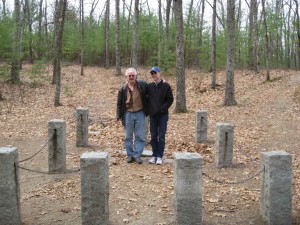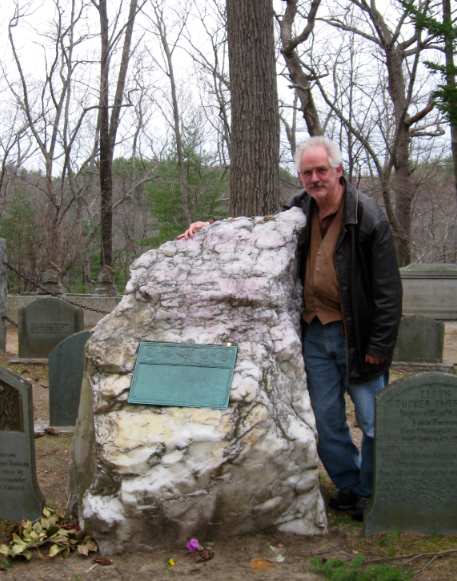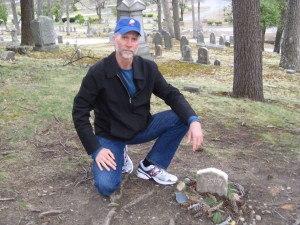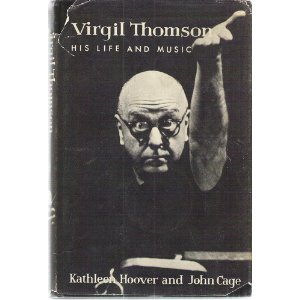Composer John Luther Adams is teaching at Harvard this semester, and he had never been to Walden Pond before – only 16 miles away, after all – so I drove out and we did the tour together. As you may recall, John is a hard-core Thoreauvian, I’m the Emersonian. Here we are united, however, on the site of Thoreau’s cabin:
So sharply do our mental processes differ and complement each other that we talked much about the Emerson-Ives-Gann world of ideas versus the Thoreau-Cage-Adams world. It amazes us that beings so overlapping in sympathy can be so disparate in perception and capacity. Later we photographically took sides, I at the grave of Emerson:
and John looming larger above Thoreau’s more modest stone:
For nine hours we pondered Transcendentalism, wondered what we were supposed to transcend, marveled at Thoreau’s wooden flute in the Concord Museum, compared teaching experiences, commiserated each other on the condescending looks that female students cast on old fart professors like us, sagely assessed our impression that the music Pulitzer, which had seemed to run amok a few years ago, is back on its familiar track, plotted music’s future, and, like druids in an ancient ritual, took turns trading stories bearing on the significance, influence, and ultimate fates of Tenney, Harrison, Nancarrow, Budd, Feldman, Young, Ashley, Cage, Ives, Cowell, and other luminaries. This world, this private world I share with John and a few other friends, keeps me sane. In it musical justice is ever meticulously meted out, brilliance is steadily recognized, mediocrity deplored, the superficial attraction of fancy musical devices dismissed, the underlying truths of art kept in sharp focus, the mathematics of spirituality grasped in all its paradox. It is, in short, in almost every way the opposite of the world outside our discussions.




